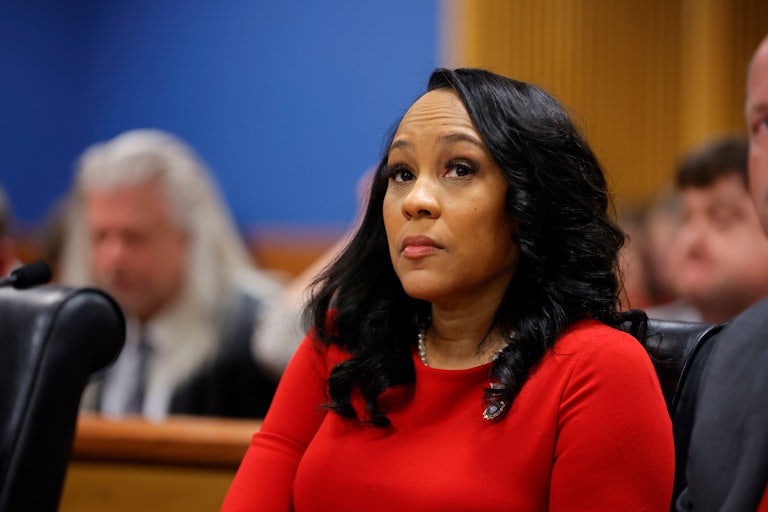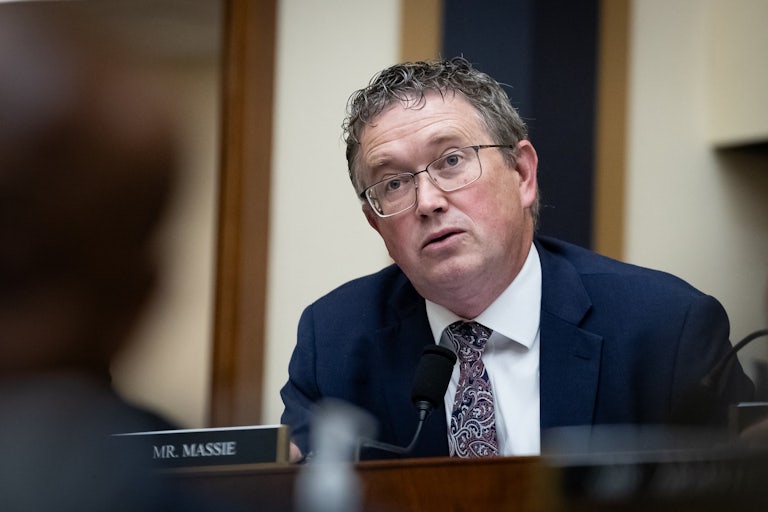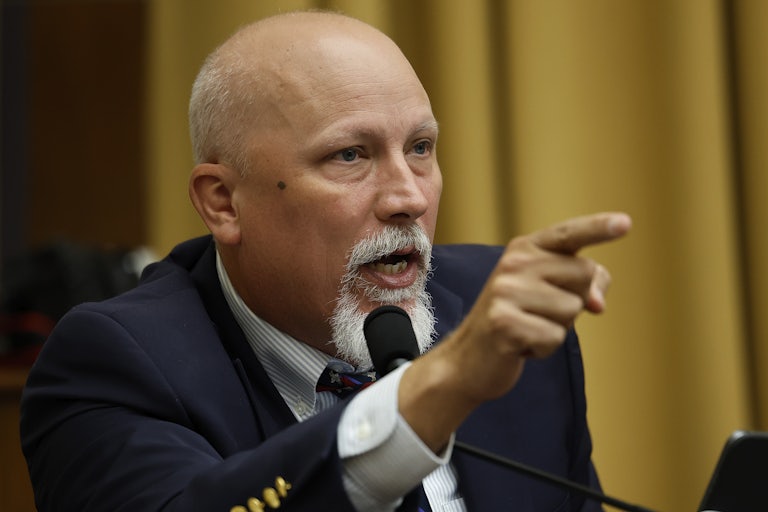AOC Jokes About Trump’s Suggestion to Her After Pelosi Snub
“Damn you know it’s bad when even Trump is feeling bad for me,” said Representative Alexandria-Ocasio Cortez.

President-elect Donald Trump and Representative Alexandria Ocasio-Cortez had a peculiar exchange after the progressive lawmaker lost a bid to become her party’s ranking member on the House Oversight Committee. The interaction appeared laden with sarcasm but perhaps also revealed something deeper about shifts in American politics.
“Really too bad that AOC lost the Battle for the Leadership Seat in the Democrat Party. She should keep trying. Someday, she will be successful!” Trump posted on Truth Social Wednesday afternoon. Ocasio-Cortez replied Wednesday, in a post followed by a laughing-crying emoji, “Damn you know it’s bad when even Trump is feeling bad for me.”
The 35-year-old Ocasio-Cortez lost her leadership bid to 74-year-old Representative Gerry Connolly—whose challenge to the popular young congresswoman was boosted by Democratic power broker former Speaker Nancy Pelosi.
Ocasio-Cortez’s loss was, for many, a sign that the Democratic Party learned few lessons from the 2024 election, remaining wedded to the sclerotic old guard and unwilling to embrace the popular change agents for whom America has an apparent appetite.
While Ocasio-Cortez appears to be taking the loss on the chin, a number of MAGA social media users accused her of failing to realize that Trump’s praise was tongue-in-cheek (apparently missing that the congresswoman’s reply was itself sarcastic).
But other users weren’t so sure Trump’s praise was insincere.
Corey Moss-Pech, a sociologist at Florida State University, tweeted, “What Donald Trump understands and Dem elites don’t is young people moving away from Dems is why he won. This is why he said this and why he said Dems couldn’t get student loans canceled. He wants young people disillusioned with Dems. And the party is happy to comply!”
Moss-Pech’s theory seems probable. In 2016 and 2020, Trump attempted to appeal to Bernie Sanders supporters disillusioned with the political establishment by calling the party’s nomination process rigged.
This election cycle, Trump heaped sincere praise on Ocasio-Cortez in a similar manner. And, notably, he chose to do so during what New York magazine called his “Gen-Z pivot.”
In his appearance on internet personality Adin Ross’s livestream in August, Trump was asked his opinion on a number of celebrities and politicians. When it came to Ocasio-Cortez, he initially said, “Fake,” but quickly changed course, veering into praise and comparing her favorably to former Argentine first lady Eva Perón.
“But in all fairness, look, but she knows it. She’s got a thing going. It’s a good thing—good thing for her,” Trump told Ross. “She’s got a spark that’s pretty amazing, actually. She’s got a good spark. So, I’ll change it. I’ll say spark.… She’s got a lot of sizzle.”
Following Election Day, Ocasio-Cortez solicited the opinions of voters who supported both herself and Trump in the 2024 election, seeking to understand split-ticket Trump-AOC voters. Many respondents indicated that they liked Trump and Ocasio-Cortez because both, to them, signified real change.








